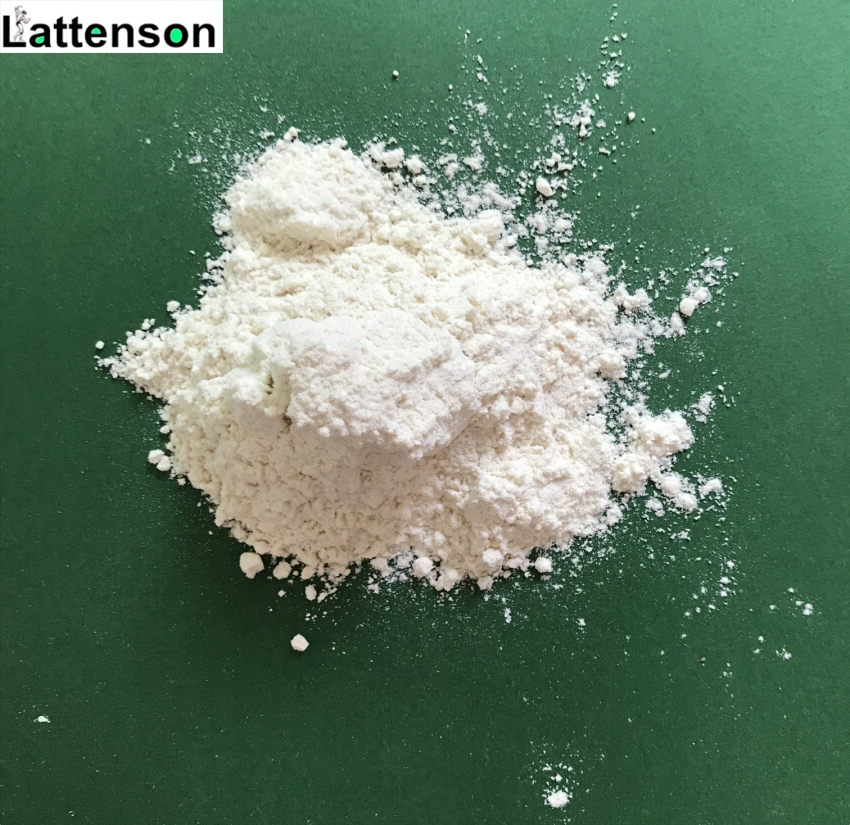Factory Price Pharmaceutical Intermediate Raw Powder NSI-189 Phosphate CAS 1270138-41-4 Pour antidépresseur
Abstrait
NSI-189 phosphate is neurogenic and nootropic research agent that was developed from nicotinamide and pyrazine.
Randomized controlled trials have shown that it stimulates neurogenesis or neuronal cell production in the brain. In animal studies, it has also been shown to increase the volume of hippocampus by 20% thereby reversing behavioral symptoms of depression. Such studies have shown that it may be an effective treatment for depression.
It is also thought to be a promising treatment for other condition including post-traumatic stress disorder (SSPT), Alzheimer’s disease and age-related cognitive problems.
More Details
1. NSI-189 phosphate is neurogenic and nootropic research agent that was developed from nicotinamide and pyrazine.
2. Randomized controlled trials have shown that it stimulates neurogenesis or neuronal cell production in the brain.
3. In animal studies, it has also been shown to increase the volume of hippocampus by 20% thereby reversing behavioral symptoms of depression. Such studies have shown that it may be an effective treatment for depression.
4. It is also thought to be a promising treatment for other condition including post-traumatic stress disorder (SSPT), Alzheimer’s disease and age-related cognitive problems.
5. Researchers have discovered that the disease-major depressive disorder (MDD)-leads to decreased hippocampal volume. Note that a healthy hippocampus is an excellent source of neural stem cells which lead to the production of neurons.
6. Neurons on the other hand are critical for creating essential new connections in the brain. Through the production of new neurons in the hippocampal area, depression can be treated.
7. NSI-189 phosphate was developed to address three important aspects of depression including hippocampal volume, neurogenèse et neurotransmission. NSI-189 augmente le volume dans l'hippocampe. En faisant ainsi, le volume de l'hippocampe et la densité des cellules cérébrales saines sont augmentés, améliorant ainsi les performances cognitives.
8. En plus d'augmenter le volume de l'hippocampe, le médicament améliore également la fonctionnalité des cellules neuronales. Il favorise une croissance saine des cellules neuronales tout en réparant les zones endommagées du cerveau..
Mechanism of Action
Researchers have discovered that the disease-major depressive disorder (MDD)-leads to decreased hippocampal volume. Note that a healthy hippocampus is an excellent source of neural stem cells which lead to the production of neurons. Neurons on the other hand are critical for creating essential new connections in the brain. Through the production of new neurons in the hippocampal area, depression can be treated.
NSI-189 phosphate was developed to address three important aspects of depression including hippocampal volume, neurogenèse et neurotransmission. NSI-189 augmente le volume dans l'hippocampe. En faisant ainsi, le volume de l'hippocampe et la densité des cellules cérébrales saines sont augmentés, améliorant ainsi les performances cognitives. En plus d'augmenter le volume de l'hippocampe, le médicament améliore également la fonctionnalité des cellules neuronales. Il favorise une croissance saine des cellules neuronales tout en réparant les zones endommagées du cerveau..
Avantages
As mentioned above, the potential benefits of NSI-189 phosphate are:
Improvement in behavioral responses associated with depression.
Reversal of hippocampal atrophy.
May enhance memory and cognition through increase neurogenesis, particularly in depressed subjects.
Positive effects may persist after treatment ceases.
Dosage
Studies conducted to evaluate effects of NSI-189 phosphate revealed that 40 à 80 mg par jour est efficace dans le traitement de la dépression et des symptômes cognitifs chez les patients en bonne santé. Dans ces procès, aucun événement indésirable grave n’a été enregistré. En général, NSI-189 phosphate is well tolerated and safe for human use.
Grosses soldes
| Antiquités (MK-2866) |
| Andarine (S4) |
| Cardarine (GW-501516)(GSK-516) |
| Coluracétam (MKC-231) |
| S-23 |
| Ligandrol (LGD-4033) |
| Ibutamoren (MK-677) |
| SR9009 |
| RAD140 |
| YK-11 |
| Aïcar |
| LGD-3303 |











 Directeur commercial
Directeur commercial